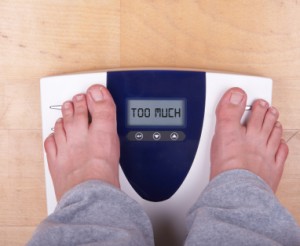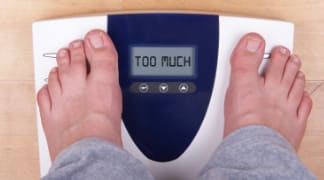 Usually when we thing of “catching” an illness, we think of the common cold or other viruses (flu) and bacterial based diseases. So if I tell you that overweight and obesity can be contagious, are you surprised? You should be. It’s not that there is something infectious about obesity—there isn’t.
Usually when we thing of “catching” an illness, we think of the common cold or other viruses (flu) and bacterial based diseases. So if I tell you that overweight and obesity can be contagious, are you surprised? You should be. It’s not that there is something infectious about obesity—there isn’t.
However, a growing body of research has found widespread cultural and sociological factors that influence the way we eat, the amount of activity and exercise that we do and how it affects our weight. Now no one will tell you that how much you eat, what kinds of food you eat and how much you expend isn’t the root cause of being overweight, but being in an environment that is not conducive to healthy behaviors have a lot to do with how much we weigh. Our genes, gender, locality, ethnicity and our social habits all contribute to what has been called the obesity epidemic.
Let’s look at some surprising statistics. Your likelihood of being obese is 37% higher if you spouse is obese. It is 40% higher is you have an obese sibling and 57% higher if your circle of friends is obese. Dr. David Rand, a Harvard researcher summed it up well when he said, “The more obese people you have contact with, the more likely you are to become obese.” Other researchers say that having four obese friends doubles your chance of becoming obese.
How bad is this obesity epidemic? There is not a state in the United States that has a rate lower than 20%-25% obesity in its population and there are only about 10 states that have that. On the other end of the spectrum are states with a rate of 30-35% obesity. Keep in mind this is obesity and not people who are “only” overweight.
Mood and Depression
Our moods can influence what we eat and the opposite is also true. A 2003 study showed a direct correlation between binge eating and levels of depression and anxiety. The study showed that the more pronounced the problem, the stronger the binges and the more often they occurred. This seems more prominent in women than men. But this is also true in the reverse direction—the type of food we eat can CAUSE bad moods and depression. Deficiencies in omega 3 and omega 6 may play a role in certain mental disorders. Boosting omega 3 (preferably through food) has been shown to improve brain function. There was also a study in 2013 showing that very low levels of Vitamin D are more likely to cause depression.
How does all of this tie in to our subject of “catching” obesity? Very simply—it’s all about economics. Those from higher economic classes are more likely to consume foods that have necessary vitamins and nutrients. So people of the same socioeconomic classes tend to stay together and have similar dietary patterns.
Genes
The likelihood of a child becoming obese doubles or triples if both parents are obese. Among 3 to 5 year olds, the chance of adult obesity today is 24%. That figure is frightening enough, but if even one parent is obese, the chance increases to 62%. And if the child himself becomes obese by age 6, the chances of adult obesity jump another 50%. So the question is; is it genes or learned behaviors from the environment that he or she grows up in? Some studies have shown a strong genetic component, however, even if the study is done well and shows significant genetic effect, it is impossible to isolate family and social influences, leaving these studies as speculative. It is almost impossible to separate between these two factors.
Culture
Dietary habits are diversified amongst the general population—almost as much as language is. Despite that, at one time for almost everyone, mealtime was a relaxing event. Our general lifestyles, along with the fast food mentality has changed that once hallowed family time. Everything is “on the go” and because we are eating takeout food, we subject ourselves to larger portions that we don’t control. 20 years ago, the average take-out hamburger was 33 calories and today it is 590. A plain bagel 20 years ago was 140 calories and today it is closer to 350—that is a 150% increase. This adds up to about double the calories consumed and we are burning about 130 calories less per day that we did. This has become a way of life—so yes, your neighbor eats fast food and so do you—contagious behavior.
How we Eat
Although fast food is part of the problem, eating food fast is just as bad. Given the fact that no one has time anymore to sit and enjoy their food together with family or friends, we eat too fast. We are always in a hurry and fast eating means eating more. It takes twenty minutes for us to fully digest food and for the “full feeling” to register in the brain. And if we eat too fast, that signal to help us stop eating doesn’t get sent in time. We are simply eating too much too fast. Measure out your meal and when you are finished, leave the table for 20 minutes. You will then feel full. Eating fast is also something that we pick up by being around other fast eaters. It is important to eat mindfully and slowly at all times. You will enjoy your meals more when you eat like this. The brachot we make on food are among those we make on something we derive pleasure from, so make sure you indeed have pleasure from your eating.
How not to catch Obesity
If you don’t want to become obese because you are socializing with those who are, then changing your social environment will be the very first step to breaking your bad habits and gaining healthy behaviors. Most people need assistance doing this. Some will succeed in a group setting; others might consider a wellness or weight-loss coach. One-on-one attention is always better.
To sum up, there are many interactions that contribute to obesity:
- Social and environmental factors like mood and activity levels
- Food choices
- Attitude toward exercise
- A person’s general health
Changing “contagious” behaviors to avoid obesity will “add hours to your days, days to your years, and years to your lives.”
Alan Freishtat is an A.C.E. CERTIFIED PERSONAL TRAINER and a BEHAVIORAL CHANGE and WELLNESS COACH with over 19 years of professional experience. Alan is the creator and director of the “10 Weeks to Health” program for weight loss. He is available for private coaching sessions, consultations, assessments and personalized workout programs both in his office and by telephone and skype. Alan also lectures and gives seminars and workshops. He can be reached at 02-651-8502 or 050-555-7175, or by email at alan@alanfitness.com Check out the his web site –www.alanfitness.com US Line: 516-568-5027.
The words of this author reflect his/her own opinions and do not necessarily represent the official position of the Orthodox Union.

